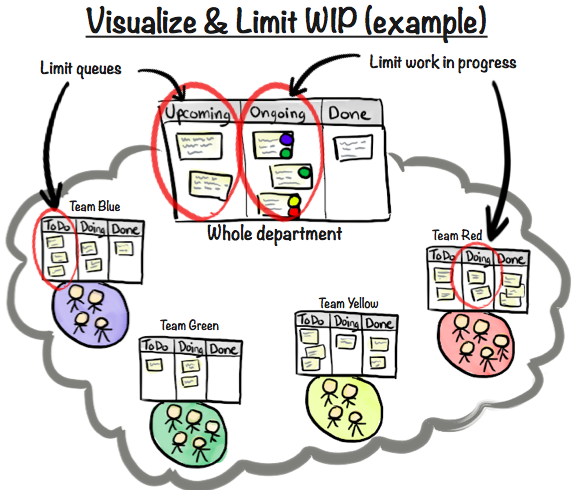(Translations: French)
Many common organizational problems can be traced down to management of Priorities and WIP (work in progress). Doing this well at all levels in an organization can make a huge difference! I’ve experimented quite a lot with this, here are some practical guidelines:


